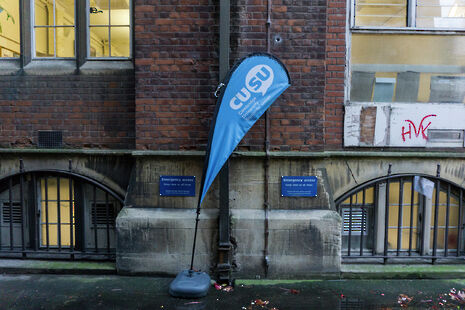Nominations open in NUS delegate by-election
The by-election to choose a third female delegate will complete CUSU’s slate of delegates

Nominations have opened for the election of the final Cambridge delegate to the National Union of Students (NUS) National Conference in April.
The election, which will run for two weeks from midnight on Thursday 19th January, will be the final stage in the process to select the five delegates who, along with the CUSU President Amatey Doku, will attend the conference in late April.
Elections for the four existing delegates, Jonty Leibowitz, Josh Jackson, Roberta Huldisch and Eireann Attridge, took place last term. While Leibowitz and Jackson are new to the NUS, Huldisch and Attridge are both currently members of the CUSU Sabbatical Team. Huldisch was also a delegate at last year’s conference.
In 2014 the NUS passed a new rule which states that at least 50 per cent of any delegation at the conference must be self-defining women. This ‘Fair Representation on NUS Conference’ policy means that, as the total delegation size is six and the maximum of three male delegates has been reached, this by-election is only open to candidates that identify as female, though it can also be filled by an individual identifying as non-binary.
The position is open because CUSU initially only received enough applications to fill two of the three female places.
The conference is a key event in the NUS and student politics calendar. It will debate a variety of issues under five key policy categories: Further Education, Higher Education, Society and Citizenship, Welfare, and Union Development. It will also elect the organisation’s new leadership.
CUSU’s delegation to the event will be among over 600 sent from the student unions of universities all over the country.
This annual conference is particularly significant after a dramatic year for the organisation. In May, individual student unions began a wave of referendums to disaffiliate from the NUS, after the newly-elected President of the NUS, Malia Bouattia, was accused of making anti-Semitic statements.
Lincoln and Newcastle were among those which voted to disaffiliate. In Cambridge, the Remain campaign narrowly won the contest by just 303 votes.
More recently, the NUS was shaken by a sting operation which recorded NUS Vice-President Richard Brooks calling Bouattia a “racist” and discussing the internal opposition to her leadership.
 News / Caius mourns its tree-mendous loss23 December 2025
News / Caius mourns its tree-mendous loss23 December 2025 Comment / Yes, I’m brown – but I have more important things to say22 December 2025
Comment / Yes, I’m brown – but I have more important things to say22 December 2025 News / Cambridge welcomes UK rejoining the Erasmus scheme20 December 2025
News / Cambridge welcomes UK rejoining the Erasmus scheme20 December 2025 News / CUP announces funding scheme for under-represented academics19 December 2025
News / CUP announces funding scheme for under-represented academics19 December 2025 Interviews / Politics, your own way: Tilly Middlehurst on speaking out21 December 2025
Interviews / Politics, your own way: Tilly Middlehurst on speaking out21 December 2025









